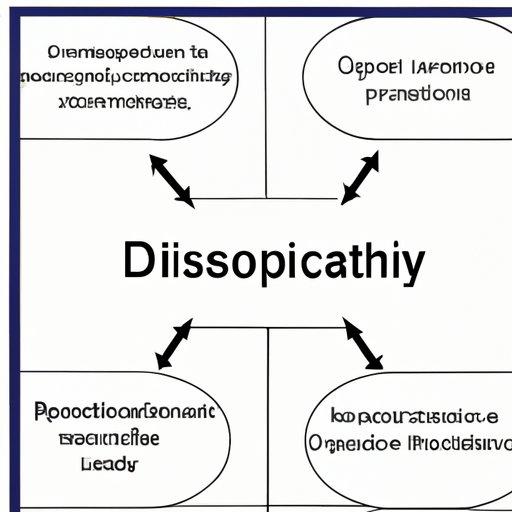Introduction
Philosophy and science have been intertwined since ancient times. But what exactly is the relationship between them? Is philosophy a science? To answer these questions, it’s important to first define both terms. Philosophy is the study of knowledge, truth, and existence. It is an exploration of fundamental questions about the nature of reality and the meaning of life. Science, on the other hand, is the systematic study of the physical and natural world through observation, experimentation, and analysis. With these definitions in mind, let’s take a look at the relationship between philosophy and science.

Examining the Intersections of Philosophy and Science
The lines between philosophy and science are often blurred, as both involve the pursuit of knowledge and understanding. Both disciplines use similar methods to explore their topics of inquiry, but there are some key differences between them. Philosophical methodology relies heavily on logical reasoning and argumentation, while scientific methodology focuses more on empiricism and experimentation. The two approaches can be complementary, or they can be in conflict.

A Debate on the Nature of Philosophy and Science
The debate over whether philosophy is a science has raged for centuries. Proponents of the view that philosophy is a science argue that the methods used by philosophers are similar to those used by scientists, and that philosophy can provide valuable insights into the natural world. On the other hand, opponents of this view point out that philosophy lacks the empirical evidence and repeatable experiments that are essential to the scientific method.

A Comparison of Philosophical and Scientific Methods
Despite their differences, there are some similarities in the methods used in philosophy and science. Both disciplines rely heavily on logic and reasoning, and both involve rigorous analysis of data and evidence. However, there are also some key differences between the two. Philosophers use abstract thought and argumentation to reach conclusions, while scientists rely more on tangible evidence from experiments and observations. Scientists also typically strive for universal truths, while philosophers may be content with reaching provisional conclusions.
Exploring the Impact of Philosophy on Science
The influence of philosophy on science cannot be denied. Historically, many of the greatest scientific minds were also philosophers, such as Aristotle and Descartes. In contemporary times, philosophy continues to shape the way we think about science. Philosophical concepts such as epistemology and ontology are essential to understanding the implications of scientific discoveries. Furthermore, philosophical debates about the limits of knowledge and the definition of science itself are essential to the advancement of the field.
An Analysis of the Differences between Philosophy and Science
Despite their similarities, there remain some fundamental differences between philosophy and science. One area of agreement is that both disciplines seek to understand the world around us. However, there are also some areas of disagreement. For example, science relies on empirical evidence and repeatable experiments, while philosophy is more concerned with logical reasoning and argumentation. Additionally, science seeks to uncover universal truths, while philosophy is more focused on understanding the complexities of individual cases.
Conclusion
In conclusion, the relationship between philosophy and science is complex. While both disciplines use similar methods to pursue knowledge and understanding, there are some key differences between them. Philosophers tend to focus on logical reasoning and argumentation, while scientists rely on empirical evidence and experimentation. Despite these differences, philosophy has had a profound impact on science throughout history and continues to do so today. Further research is needed to better understand the connections between these two fields.
(Note: Is this article not meeting your expectations? Do you have knowledge or insights to share? Unlock new opportunities and expand your reach by joining our authors team. Click Registration to join us and share your expertise with our readers.)
